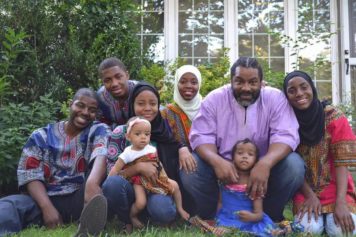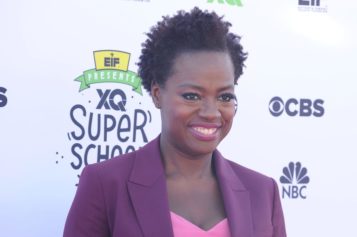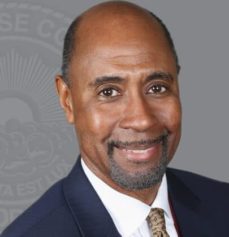When it comes to K-12 education, African-Americans have seldom had much of a choice. This was exemplified by the U.S. Supreme Court’s landmark 1954 ruling in Brown v. Board of Education that declared separate was not equal and that African-Americans had little choice but to attend inferior segregated schools. More than six decades later — with a majority of America’s public school students now nonwhite and in a century dominated by educational notions of “school choice” — some feel little has changed.
“We are in critical condition,” says Dr. Chike Akua, an award-winning educator, speaker, author and teacher trainer. “Many of the schools our children attend are failing schools where they are not even leaving with basic skills.” The Atlanta-based educator insists there “needs to be a dramatic transformation from the top to the bottom, and then from the bottom back to the top.”
Consistent with Akua’s words, contemporary indicators of success still find African-American students struggling at the bottom. U.S. Department of Education figures reveal, at grade 4, the white-Black gap in reading in 2013 (26 points) was not measurably different than in 1992 and, at grade 12, this gap was larger in 2013 (30 points) than in 1992. Also, in 2012, the percentage of both Black male and female students suspended from school was more than twice the percentage of whites and other groups.
Given such troubling data, the question becomes, does school choice — a general term for such K–12, publicly funded alternatives to traditional public schools as charter schools, vouchers and scholarship tax credit programs — really offer a viable solution for the lagging performance of African-American students?
Depends on who you ask. “I think ‘school choice’ is a false term better understood as school privatization,” contends education activist Jesse Hagopian. The Seattle history teacher says it’s more about “systematically underfunding the public schools while imposing policies that lead to further segregation,” then claiming them to be “a disaster” and giving families “a way out.” Hagopian describes this process as “exactly backwards. We should support and transform the public schools into academies of critical thinking and give our kids the resources they need to be successful rather than siphon off money into charter schools or voucher schemes that are really about funneling public money into private hands.”
Others see it differently. “All parents deserve the right to have choice,” insists Jacqueline Cooper, president of the Black Alliance for Educational Options, a nonprofit advocacy group. “We cannot live in an America where only people with money get to decide where and how their children are educated. So, this is about equity for parents.” Cooper goes on to stress her organization’s support for “high-quality educational options regardless of what that option is,” be it a charter or traditional public school, homeschool or otherwise.
Relevant data does little to settle the debate. While the troubled performance of Black students in traditional public schools is commonly acknowledged, outside of a number of select local cases, charters have not fared much better. Critics point to national studies that deny charter school claims of a better educational environment for African-American and Latino students.
Though there is dissension about the method of delivery, few would deny such educational disparities are steeped in a history of racism and inequity. In 1896, the Supreme Court’s Plessy v. Ferguson decision ensured separate but equal would be the law of the land well into the 20th century. Five decades in, U.S. Census Bureau reports show one in seven African-Americans, as opposed to one in three whites, held a high school diploma. It would take almost 60 years before the Brown decision would even begin to address the country’s legally sanctioned segregation and its associated educational inequities.
By no coincidence, a year after the Brown decision, conservative economist Milton Friedman penned his clarion essay, “The Role of Government in Education,” proposing an initial voucher system where parents could spend redeemable sums on educational services provided by private enterprise. A quarter of a century later, Friedman’s concept was adopted as a controversial component of Ronald Reagan’s presidential platform urging school choice. Though vouchers would achieve more opposition than success, they would eventually trigger a stronger, more palatable representation of school choice in the form of charter schools, first legislated by Minnesota in 1991. Given their support by incoming president and ‘New Democrat’ Bill Clinton, charter schools have since proliferated throughout the nation along with ongoing efforts to dismantle Brown-based desegregation and school funding policies.
This educational tug-of-war over school funding and choice now plays out in contemporary headlines in states like Kansas and Kentucky and on the national level. “I am calling upon members of both parties to pass an education bill that funds school choice for disadvantaged youth, including millions of African-American and Latino children,” Donald Trump said in his Feb. 28 presidential address to a joint session of Congress. “These families should be free to choose the public, private, charter, magnet, religious or home school that is right for them.” It is believed Trump will use tax-credit scholarships — a controversial scheme more commonly labeled “back-door vouchers” — as a means of funding his education ambitions and getting around state constitutions prohibiting the use of public money for religious institutions. Georgia has had its own dispute over such measures.
But regardless of what side one ultimately supports in the contentious politics of school choice, when it comes to educating African-American students, there is a clear need for more effective solutions. And some believe the best choice we can make to educate our children is to choose to know who we are.
“I am particularly partial to independent African-centered institutions,” says Akua. “You cannot have academic excellence without cultural excellence.” High test scores mean little, he explains, “if I have no sense of self and no sense of service to my community.”
“Most of our children are learning European ideas and ideals to examine information and they then learn how to solve problems in the broader community so that they never learn how to solve problems in their own community,” continues Akua, noting this is “deeply problematic. This is why we must have a culture-centered education, and if your child is not getting that at the school they’re at, then they definitely need to be getting it at home.”
For 25 years, the d’Zert club, a culture-centered youth organization that Akua works with, has embodied this important linkage between academic and cultural excellence. Having served thousands of Black students across the nation, the club provides cultural enrichment activities for school-age students including a free annual trip to Egypt for those who complete the two-year program. The program is accessible regardless of what type of school a child is currently enrolled in.
“Ninety-three percent of the students that participated in the d’Zert club were accepted into a four-year college,” Akua says, further revealing that half of these students “enter college on a full scholarship” after being in the program.
“We know what it takes to educate our children,” Akua maintains. “We also know what doesn’t work, and its problematic when we see so much failure going on in many urban schools that we populate.”
Akua adds, “It doesn’t have to be that way.”



